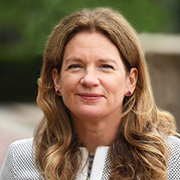On November 4, 2022, the Federal Reserve Bank of New York hosted a hybrid symposium titled “Inflation: Risks, Implications, and Policies.” The goal of the symposium, which was organized by the Applied Macroeconomics and Econometrics Center of the Federal Reserve Bank of New York, was to stimulate a thought-provoking debate among participants— who included academics, practitioners, and policymakers—on the implications of high inflation and the policies needed to combat it. The event was comprised of presentations, followed by Q&A, on the following topics: inflation and financial markets, inflation and inequality, inflation expectations, and disinflation policies.
This was a hybrid event, with most presenters in person and all attendees joined virtually.
All remarks were on the record, with a recording to be made available afterward. For Media inquiries, please contact Mariah Measey at at mariah.measey@ny.frb.org.
Nina Boyarchenko
Marco Del Negro
Keshav Dogra
Argia Sbordone
November 4, 2022
10:25 AM-3:35 PM EDT
Hybrid: Federal Reserve Bank of New York and virtual.
| 10:25-10:30pm | Introduction |
| 10:30-11:30am | Inflation and Financial Markets Does the current period of elevated inflation pose financial stability concerns, for example through rising mortgage rates? Given the relatively short history of trading in inflation-linked securities, is there a bigger chance of a “hedging” mistake for inflation risks? How reliable are market-based measures of inflation expectations in the current environment? Speakers: Hanno Lustig, Stanford University; Ángel Ubide, Citadel Hanno Lustig's Presentation Ángel Ubide's Presentation |
| 11:30-11:35pm | Break |
| 11:35am-12:35pm | Inflation and Inequality What do we know about the distributional effects of inflation and disinflationary policies? Do models that take inequality into account imply different costs of inflation than representative agent models, and if so, why? How (if at all) does heterogeneity affect the appropriate measure of slack in the Phillips curve? Speakers: Xavier Jaravel, London School of Economics; Martin Schneider, Stanford University Xavier Jaravel's Presentation |
| 12:35-1:30pm | Lunch |
| 1:30-2:30pm | Inflation Expectations Which inflation expectations matter the most for inflation dynamics—those of households, firms, markets, professional forecasters—and at what horizon? What anchors longer-term inflation expectations? How should we measure the risks that expectations become unanchored? Do the Fed’s current strategy and communications provide adequate anchoring? Speakers: Hassan Afrouzi, Columbia University; Ulrike Malmendier, University of California Berkeley Hassan Afrouzi's Presentation Ulrike Malmendier's Presentation |
| 2:30-2:35pm | Break |
| 2:35-3:35pm | Disinflation Policies What is an appropriate disinflation strategy? How does it depend on the mix of demand or supply shocks? What, if anything, does recent experience tell us about the desirability of “makeup” strategies? Is a significant slowdown in real activity needed to bring down inflation? Did Chair Volcker bring inflation down in the early 1980s mainly by generating a sharp recession or by making the Fed’s commitment to disinflation more “credible” than his predecessors had? How is central bank credibility gained and lost? Speakers: Jennifer La’O, Columbia University; Stephanie Schmitt-Grohé, Columbia University Jennifer La’O's Presentation Stephanie Schmitt-Grohé's Presentation |


















